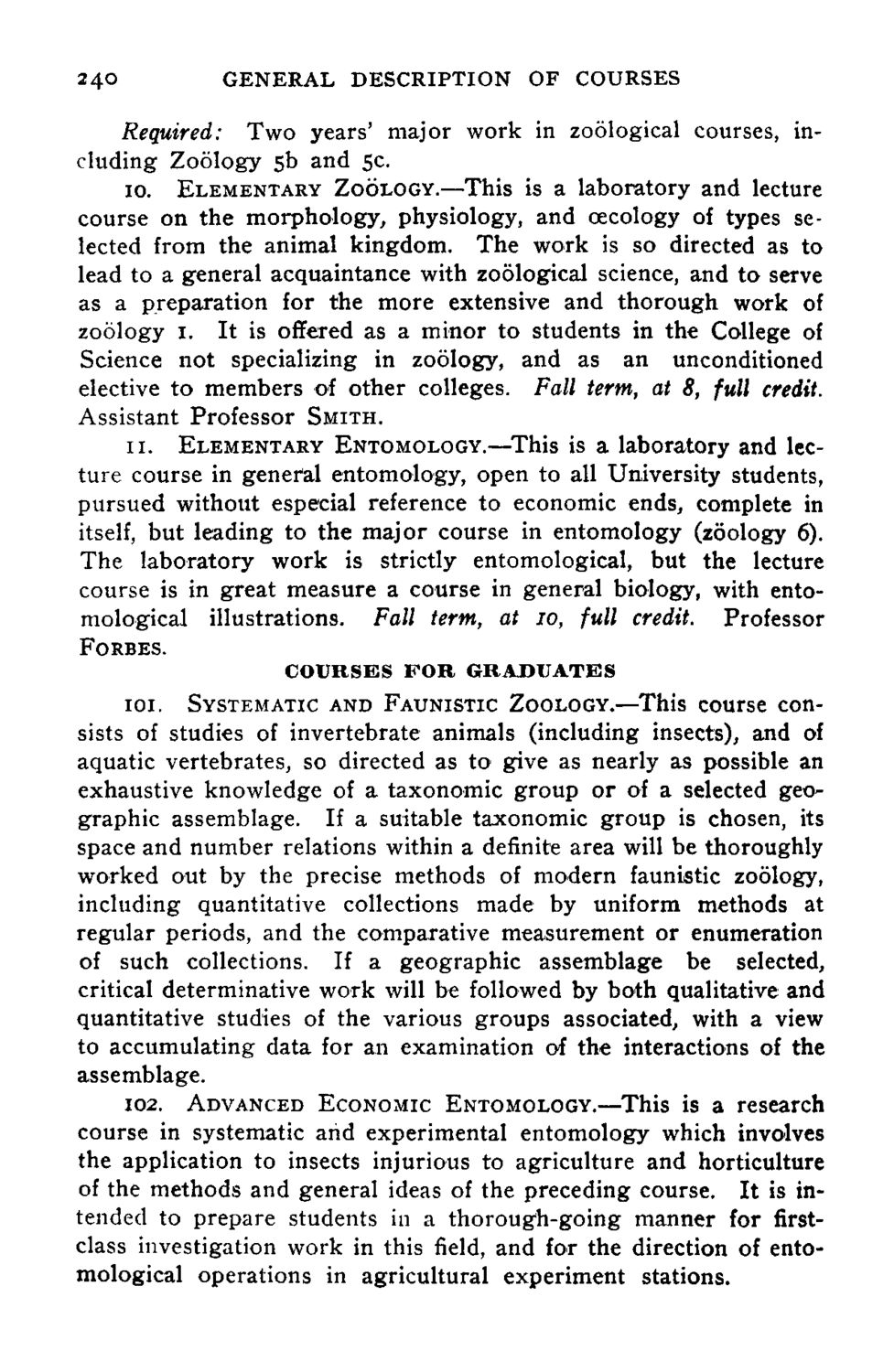Caption: Course Catalog - 1897-1898
This is a reduced-resolution page image for fast online browsing.

EXTRACTED TEXT FROM PAGE:
240 GENERAL DESCRIPTION OF COURSES Required: Two years' major work in zoological courses, including Zoology 5b and 5c. 10. ELEMENTARY ZOOLOGY.—This is a laboratory and lecture course on the morphology, physiology, and cecology of types selected from the animal kingdom. The work is so directed as to lead to a general acquaintance with zoological science, and to serve as a preparation for the more extensive and thorough work of zoology 1. It is offered as a minor to students in the College of Science not specializing in zoology, and as an unconditioned elective to members of other colleges. Fall term, at 8, full credit. Assistant Professor SMITH. 11. ELEMENTARY ENTOMOLOGY.—This is a laboratory and lec- ture course in general entomology, open to all University students, pursued without especial reference to economic ends, complete in itself, but leading to the major course in entomology (zoology 6). The laboratory work is strictly entomological, but the lecture course is in great measure a course in general biology, with entomological illustrations. Fall term, at 10, full credit. Professor FORBES. COURSES F O R GRADUATES 101. SYSTEMATIC AND FAUNISTIC ZOOLOGY.—This course con- sists of studies of invertebrate animals (including insects), and of aquatic vertebrates, so directed as to give as nearly as possible an exhaustive knowledge of a taxonomic group or of a selected geographic assemblage. If a suitable taxonomic group is chosen, its space and number relations within a definite area will be thoroughly worked out by the precise methods of modern faunistic zoology, including quantitative collections made by uniform methods at regular periods, and the comparative measurement or enumeration of such collections. If a geographic assemblage be selected, critical determinative work will be followed by both qualitative and quantitative studies of the various groups associated, with a view to accumulating data for an examination of the interactions of the assemblage. 102. ADVANCED ECONOMIC ENTOMOLOGY.—This is a research course in systematic arid experimental entomology which involves the application to insects injurious to agriculture and horticulture of the methods and general ideas of the preceding course. It is intended to prepare students in a thorough-going manner for firstclass investigation work in this field, and for the direction of entomological operations in agricultural experiment stations.
|